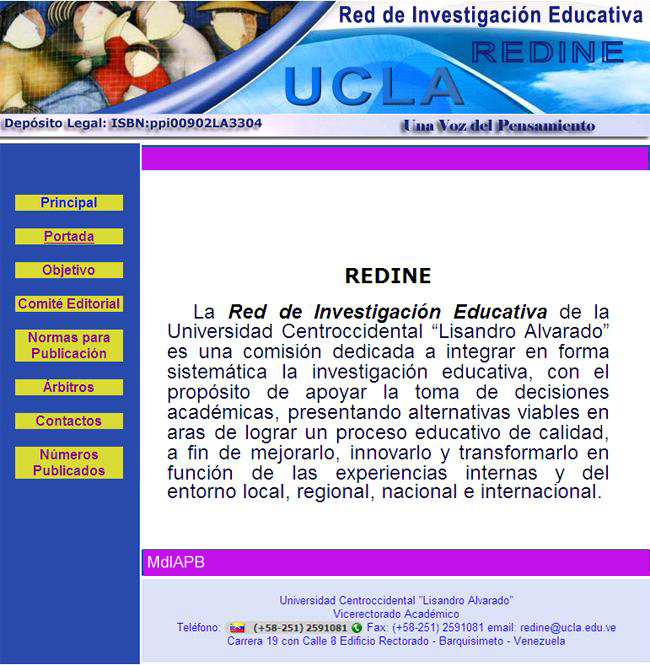Reflections: complex thought and the principle of feedback in education
Keywords:
complex thought, education, feedback processAbstract
The following essay is based upon reflections about possible applications of principles of complex thought in education. Thus, the content of the article highlights present inconvenient as to how to reach and spread the importance and praxis of the principles of complexity in education nowadays. Facing this reality, some question arise: in what way can the complex thought be thrusted during the teaching – learning process in classrooms? What principle of complexity must initially be brought upon education? Can the feedback principle be fundamental in the educational formation of the social actor? Due to such reasons, during the extension of the essay, a couple of introspections will emerge and they will try to answer the afore mentioned questions with the purpose of elevating the interest of every party involved in the educational field about the topic portrayed.
Downloads
References
González S. (1997). Pensamiento complejo. Cooperativa Bogotá- Colombia: Magisterio. (p 11)
Morín, E. (2000). Los Siete Saberes Necesarios a la Educación del Futuro. Unidad de Publicaciones y Centro de Investigaciones Post-Doctorales. Facultad de Ciencias Económicas y Sociales de la UCV y el Instituto de Educación Superior para América Latina y el Caribe. (pp. 13,14)
Morín, E. (2002). La Cabeza bien puesta. Repensar la Reforma Reformar el Pensamiento. Buenos Aires – Argentina: Ediciones Nueva Visión (pp. 20,99)
Torres, E. (2005). Principios del Pensamiento Complejo. Programa Interinstitucional Doctorado en Educación
Published
How to Cite
Issue
Section
Copyright from the year of publication
This work is licensed under a:
Creative Commons Reconocimiento-NoComercial-CompartirIgual 4.0 Internacional (CC BY-NC-SA 4.0)
The opinions expressed by the authors do not necessarily reflect the views of the publication's editor or UCLA. Total or partial reproduction of the texts published here is authorized, provided that the complete source and the electronic address of this journal are cited. Authors have the right to use their articles for any purpose, provided it is done on a non-profit basis. Authors may publish the final approved version of their work online or in any other medium after it has been published in this journal.




